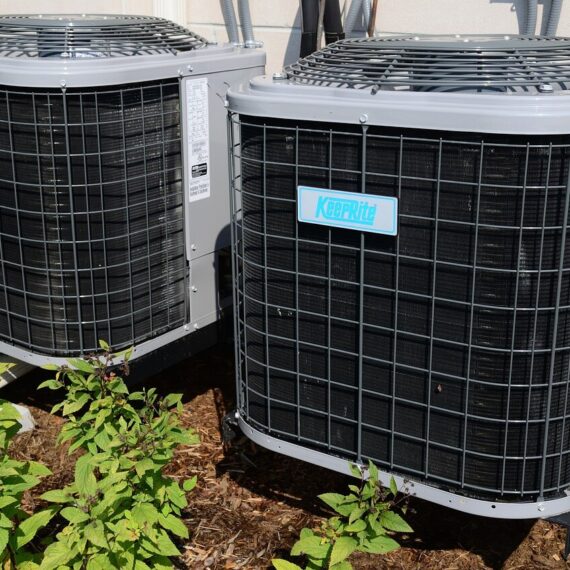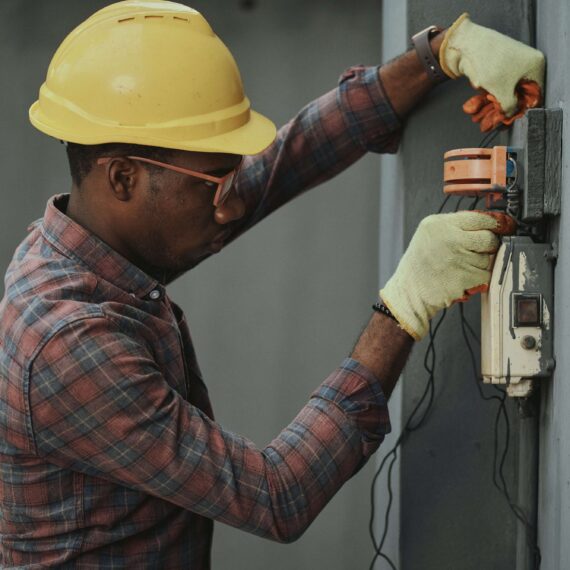Frequently Asked Questions about Heat Pumps (FAQS)
How much does a heat pump cost?
The cost of a heat pump can vary depending on several factors, including the type of heat pump, its size or capacity, the brand, and the installation requirements. Additionally, regional factors such as labor costs and availability of incentives or rebates can influence the overall cost.
In general, the price range for heat pumps can be quite broad. For a basic air-source heat pump, the cost can start around $4,500 and go up to $10,000 or more for a high-efficiency model with advanced features. Geothermal heat pumps, which are generally more expensive but highly efficient, can range from $8,000 to $20,000 or more, depending on the system’s size and complexity.
It’s important to note that the cost of the heat pump itself is just one component of the overall installation cost. Other expenses, such as labor, additional materials, ductwork modifications or installation, electrical upgrades, and permits, should also be considered. It is advisable to consult with local HVAC professionals or obtain multiple quotes to get a more accurate estimate based on your specific needs and location.
Can heat pumps work in extreme temperatures?
Heat pumps are designed to work efficiently in a wide range of temperatures, including extreme cold and heat. However, their performance can vary depending on the specific model and climate conditions. In colder climates, heat pumps may rely on auxiliary heating systems or have additional features, such as defrost cycles, to enhance their performance. It’s essential to choose a heat pump with a suitable heating capacity for your specific climate to ensure optimal performance.
Are heat pumps suitable for all types of homes?
Heat pumps can be a viable heating and cooling solution for various types of homes, including single-family houses, townhouses, apartments, and even commercial buildings. However, the suitability of a heat pump depends on factors such as the size of the home, insulation levels, climate conditions, and the availability of an appropriate heat source (e.g., air, ground, or water). It’s recommended to consult with a professional HVAC contractor who can assess your home’s specific requirements and determine the most suitable heat pump system for your needs.
How long do heat pumps typically last?
The average lifespan of a heat pump typically ranges from 10 to 15 years. However, with proper maintenance and regular servicing, heat pumps can last even longer. The longevity of a heat pump depends on factors such as the quality of the unit, usage patterns, maintenance practices, and environmental conditions. Regularly cleaning or replacing air filters, keeping the outdoor unit clear of debris, and scheduling professional maintenance can help extend the lifespan of a heat pump.
Can a heat pump be installed in an existing home?
Yes, heat pumps can be installed in existing homes. The feasibility of installation depends on the available space, the layout of the home, and the specific requirements of the heat pump system. Different types of heat pumps, such as air-source, ground-source (geothermal), or water-source, may have different installation requirements. It’s recommended to consult with a professional HVAC contractor who can assess your home and provide guidance on the best installation options for your specific situation. In some cases, modifications or upgrades may be necessary to accommodate the heat pump system.

How energy-efficient are heat pumps compared to traditional heating and cooling systems?
Heat pumps are known for their high energy efficiency. They can provide efficient heating and cooling by transferring heat from one area to another, rather than generating heat themselves. The efficiency of a heat pump is measured by its coefficient of performance (COP), which represents the ratio of heat output to electrical input. Heat pumps typically have COP values greater than 1, meaning they produce more heat energy than the electrical energy they consume. Compared to traditional heating systems like furnaces or electric resistance heaters, heat pumps can provide significant energy savings.
Are heat pumps noisy when operating?
Modern heat pumps are designed to operate quietly, and their noise levels are generally low. However, some factors can contribute to noise, such as the outdoor unit’s location, the type of compressor used, and the overall quality of the heat pump. Manufacturers often provide information about the noise levels of their heat pump models, measured in decibels (dB). It’s advisable to review the specifications and consult with HVAC professionals to choose a heat pump with low noise ratings if noise is a concern.
Can a heat pump be used as the sole heating and cooling system in a home?
Yes, heat pumps can be used as the primary heating and cooling system in a home. They are designed to provide both heating and cooling capabilities, making them versatile and efficient. Heat pumps can extract heat from the outdoor air, ground, or water source to provide warmth during colder months and reverse the process to cool indoor spaces during warmer months. However, in regions with extremely low temperatures, heat pumps may require supplemental heating from other sources or backup systems to ensure adequate warmth.
Can a heat pump help reduce heating and cooling costs?
Yes, heat pumps can help reduce heating and cooling costs compared to traditional systems. By utilizing the ambient heat from the outdoor air, ground, or water, heat pumps require less energy to generate heat or cool indoor spaces. This energy efficiency can result in significant savings on utility bills. However, it’s important to note that the actual cost savings depend on various factors, including the specific heat pump model, local energy prices, insulation levels, and climate conditions. Consulting with HVAC professionals and performing a cost analysis can provide a more accurate estimation of potential savings.
How often should a heat pump be serviced or maintained?
Regular maintenance is crucial to ensure the optimal performance and longevity of a heat pump. It is generally recommended to have a professional HVAC technician inspect and service the heat pump at least once a year. This maintenance visit may involve tasks such as cleaning or replacing air filters, checking refrigerant levels, inspecting electrical connections, lubricating moving parts, and verifying overall system performance. Additionally, homeowners should perform basic maintenance tasks like regularly cleaning the outdoor unit and keeping it free from debris.
Are there any specific requirements for electrical connections when installing a heat pump?
Yes, heat pumps require specific electrical connections to operate efficiently. The electrical requirements can vary depending on the size and type of the heat pump system. It is crucial to consult the manufacturer’s specifications or guidelines and adhere to local electrical codes during installation. In most cases, heat pumps require dedicated circuits with appropriate voltage and amperage capacity. It is highly recommended to hire a licensed electrician or HVAC professional to handle the electrical connections and ensure compliance with safety regulations.

What are the different types of heat pumps available and how do they differ in terms of performance and cost?
There are several types of heat pumps available, including air-source heat pumps, ground-source (geothermal) heat pumps, and water-source heat pumps. Air-source heat pumps extract heat from the outdoor air, ground-source heat pumps extract heat from the ground, and water-source heat pumps extract heat from a water source, such as a lake or well. Each type has its own advantages and considerations regarding performance and cost.
Air-source heat pumps are the most common and cost-effective option, suitable for moderate climates. Ground-source heat pumps provide high efficiency but tend to have higher upfront costs due to the ground loop installation. Water-source heat pumps can offer excellent efficiency but require access to a water source. The choice of heat pump type depends on factors such as climate conditions, available space, soil conditions, local regulations, and budget.
Are there any environmental benefits to using a heat pump compared to other heating and cooling systems?
Yes, heat pumps offer several environmental benefits compared to other heating and cooling systems. As they transfer heat rather than burn fossil fuels to create it, heat pumps have a lower carbon footprint, resulting in reduced greenhouse gas emissions. Heat pumps can contribute to energy conservation and sustainability by efficiently utilizing renewable energy sources, such as the ambient heat from the air, ground, or water. Additionally, using heat pumps can help reduce dependence on non-renewable energy sources, leading to a more environmentally friendly heating and cooling solution.






